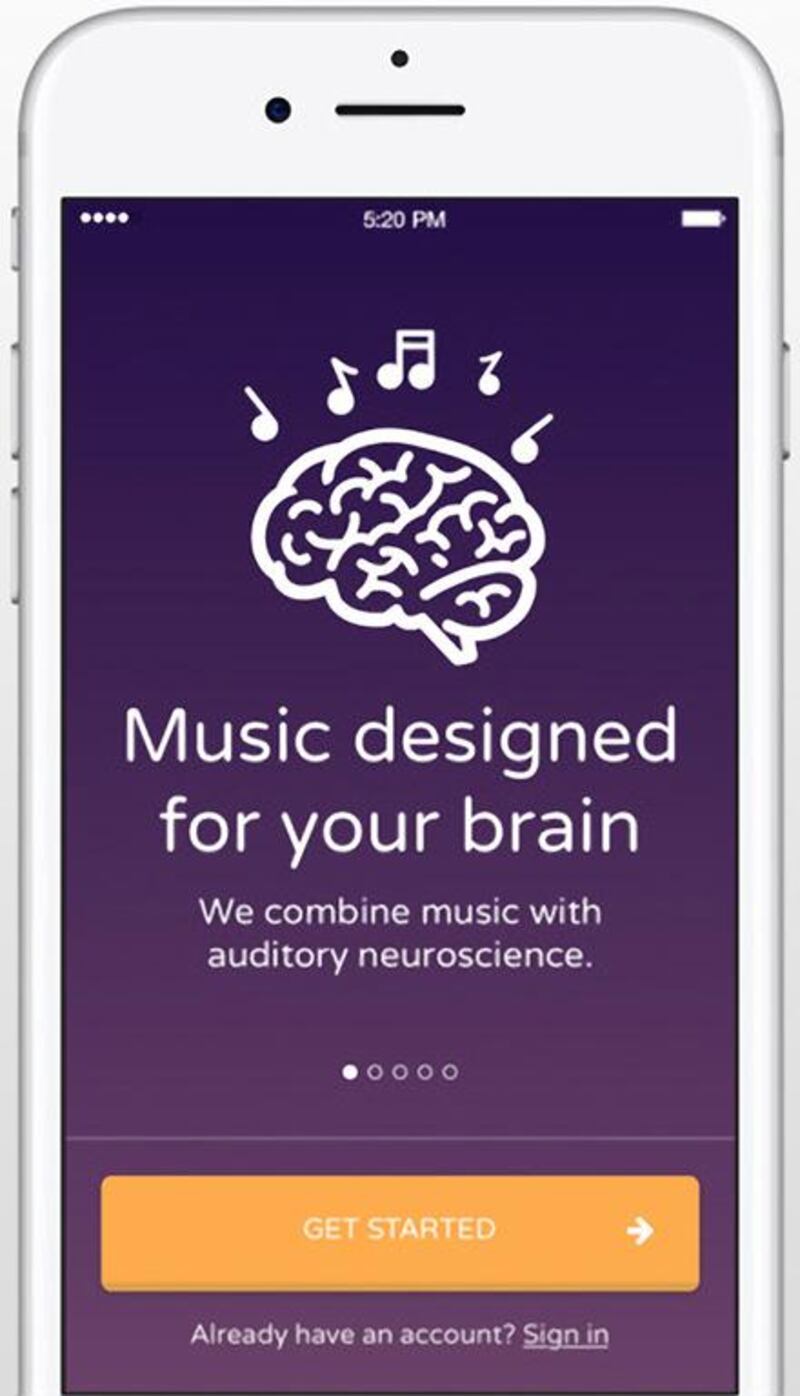I’m listening to “forest focus” as I type this, a continuous loop of music created by the algorithms at Brain.fm that will help to get my brain in gear for either work, reading or creativity.
There's a base level of white noise shushing in and out, the odd bird tweet and a quiet, slightly ominous sounding electronic drone. When I first switch it on, something kicks in: perhaps the placebo effect, and I feel full of energy. Ten minutes later, I switch it off; it's giving me a headache. Give me Brian Eno's Music for Airports over this, any time.
Brain.fm is a streaming music service founded in 2014 that allows you to sign up for free in seconds; simply fill out your email address and a couple of questions about who you are. You then choose the state of mind you’d like to be lulled into: focus, relaxation or sleep. (Apparently, focus is by far the most popular.) The music will automatically start, created by bots which keep creating variations on the same basic sounds, or you can take matters into your own hands via the “Explore” feature. Here you can select between several variations of your chosen type of music: would you prefer “underwater sleep”, for example, or are you more in the mood for “chimes and bowls relax” or “cinematic music focus”? As the music plays, motivational quotes drift on to the screen and a pulse of light moves in a wave.
On productivity forums there are fans who swear by Brain.fm so vociferously that they say their body gets overexcited by the focus mode – they get tingling in their fingers and have to lie down. I certainly didn’t feel this effect. The service effectively drowns out background noise, and probably helps you to focus more than some random Spotify playlist, but no more than other similar services out there. These include Coffitivity, which creates the sounds of a busy coffee shop in your headphones, or a 10-hour YouTube track of “pink noise” (a more soothing version of white noise). I might use the seven free sessions, but I won’t be paying for the service once they’re up.
q&a tuned in to the frequencies
Jessica Holland expands on what the AI music composer Brain.fm has to offer:
Who is behind this?
The platform was created in 2014 by Adam Hewlett, a musician who previously created a music composition software company, and Junaid Kalmadi, whose experience includes a networking app.
What’s the science involved?
Brain.fm is based on the idea that our attention happens in waves, because speech, walking and other things we do and perceive have a rhythm to them. This is called “Dynamic Attending Theory”. Certain frequencies and types of music can stimulate the brain into certain attentive (or relaxed) states, according to another theory cited in Brain.fm’s FAQs, called entrainment. Neuroscientists are divided as to whether this really works.
How much is it to subscribe?
Once you’ve used up your free sessions, it’s US$6.95 monthly or $3.99 monthly if you pay for a year upfront. You can also choose a lifetime subscription for $149.99, which comes with a 60-day money back guarantee. A pro account also unlocks the “progress” feature, which offers reports that track how you’re doing, whether you’re trying to sleep more or concentrate on work for longer blocks of time.
Is there a mobile app?
Yes, an iOS app has just launched, but Android users will have to wait a little longer.
Where do we find it?
Go to the website at Brain.fm or find the app on iTunes.
business@thenational.ae
Follow The National's Business section on Twitter





